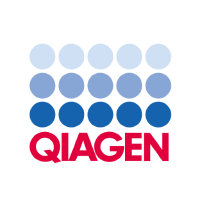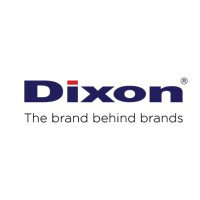
Perella Weinberg Partners
NASDAQ:PWP


Utilize notes to systematically review your investment decisions. By reflecting on past outcomes, you can discern effective strategies and identify those that underperformed. This continuous feedback loop enables you to adapt and refine your approach, optimizing for future success.
Each note serves as a learning point, offering insights into your decision-making processes. Over time, you'll accumulate a personalized database of knowledge, enhancing your ability to make informed decisions quickly and effectively.
With a comprehensive record of your investment history at your fingertips, you can compare current opportunities against past experiences. This not only bolsters your confidence but also ensures that each decision is grounded in a well-documented rationale.
Do you really want to delete this note?
This action cannot be undone.

| 52 Week Range |
15.45
26.16
|
| Price Target |
|
We'll email you a reminder when the closing price reaches USD.
Choose the stock you wish to monitor with a price alert.
This alert will be permanently deleted.
Perella Weinberg Partners
In the realm of high-stakes financial advising and investment banking, Perella Weinberg Partners stands out as a formidable player. Established in 2006 by industry veterans Joe Perella, Peter Weinberg, and Terry Meguid, the firm quickly garnered a reputation for offering shrewd, strategic advisory services. Operating at the nexus of strategic financial consulting, the company assists clients with mergers and acquisitions, restructurings, and a variety of capital-related endeavors. Perella Weinberg Partners prides itself on its ability to craft bespoke financial strategies, guiding corporations and institutions through complex, multifaceted transactions. The firm thrives on its deep-rooted expertise, an extensive network of relationships, and a commitment to maintaining an independent, client-centered approach.
Perella Weinberg's business model hinges on generating advisory fees from the high-value deals it orchestrates on behalf of clients. Revenues flow from advising corporations and institutions on multi-billion-dollar transactions, providing vital insights and strategic counsel to ensure successful outcomes. Their role often involves initiating deals, negotiating terms, and subsequently navigating the intricacies of regulatory approvals, all while safeguarding their clients' interests. In doing so, they leverage a team of seasoned professionals who bring a wellspring of experience and keen analytical acumen to diverse sectors. By positioning itself as a trusted advisor in the complex world of corporate finance, Perella Weinberg Partners continues to not only sustain but grow its influential foothold in the competitive landscape of global finance.

In the realm of high-stakes financial advising and investment banking, Perella Weinberg Partners stands out as a formidable player. Established in 2006 by industry veterans Joe Perella, Peter Weinberg, and Terry Meguid, the firm quickly garnered a reputation for offering shrewd, strategic advisory services. Operating at the nexus of strategic financial consulting, the company assists clients with mergers and acquisitions, restructurings, and a variety of capital-related endeavors. Perella Weinberg Partners prides itself on its ability to craft bespoke financial strategies, guiding corporations and institutions through complex, multifaceted transactions. The firm thrives on its deep-rooted expertise, an extensive network of relationships, and a commitment to maintaining an independent, client-centered approach.
Perella Weinberg's business model hinges on generating advisory fees from the high-value deals it orchestrates on behalf of clients. Revenues flow from advising corporations and institutions on multi-billion-dollar transactions, providing vital insights and strategic counsel to ensure successful outcomes. Their role often involves initiating deals, negotiating terms, and subsequently navigating the intricacies of regulatory approvals, all while safeguarding their clients' interests. In doing so, they leverage a team of seasoned professionals who bring a wellspring of experience and keen analytical acumen to diverse sectors. By positioning itself as a trusted advisor in the complex world of corporate finance, Perella Weinberg Partners continues to not only sustain but grow its influential foothold in the competitive landscape of global finance.
Revenue: Perella Weinberg reported Q3 revenue of $165 million, with year-to-date revenue at $532 million, below last year's record but supported by strong fundamentals.
Pipeline: The number of active client engagements and the overall deal pipeline have reached record highs, with growing momentum in traditional M&A expected into 2026.
European Growth: The firm's European business is up over 50% year-on-year, contributing significantly to results.
Strategic Hiring: The firm added 25 senior bankers in 2025, representing 18% of the partner base, aiming to drive future revenue growth.
Devon Park Acquisition: The acquisition of Devon Park closed on October 1, immediately expanding capabilities in private capital and sponsor relationships.
Expense Discipline: Noncompensation expenses for the quarter fell year-on-year and remained flat versus Q2; full-year expense guidance was lowered to a low single-digit increase.
Capital Return: Over $157 million was returned to equity holders year-to-date through dividends, share repurchases, and other actions.
Balance Sheet: The company ended the quarter with $186 million in cash and no debt, and declared a $0.07 per share dividend.













